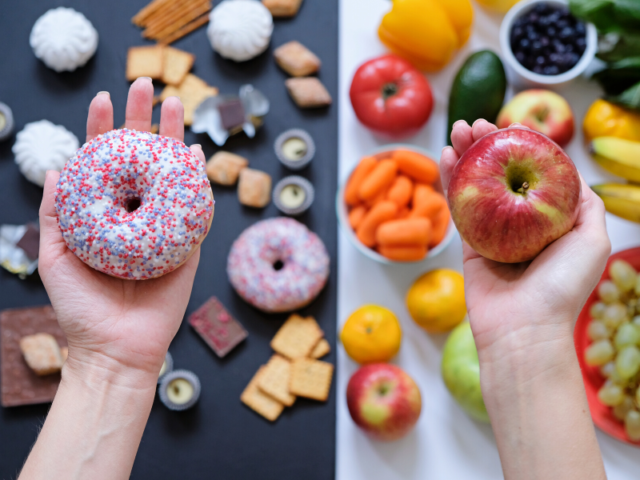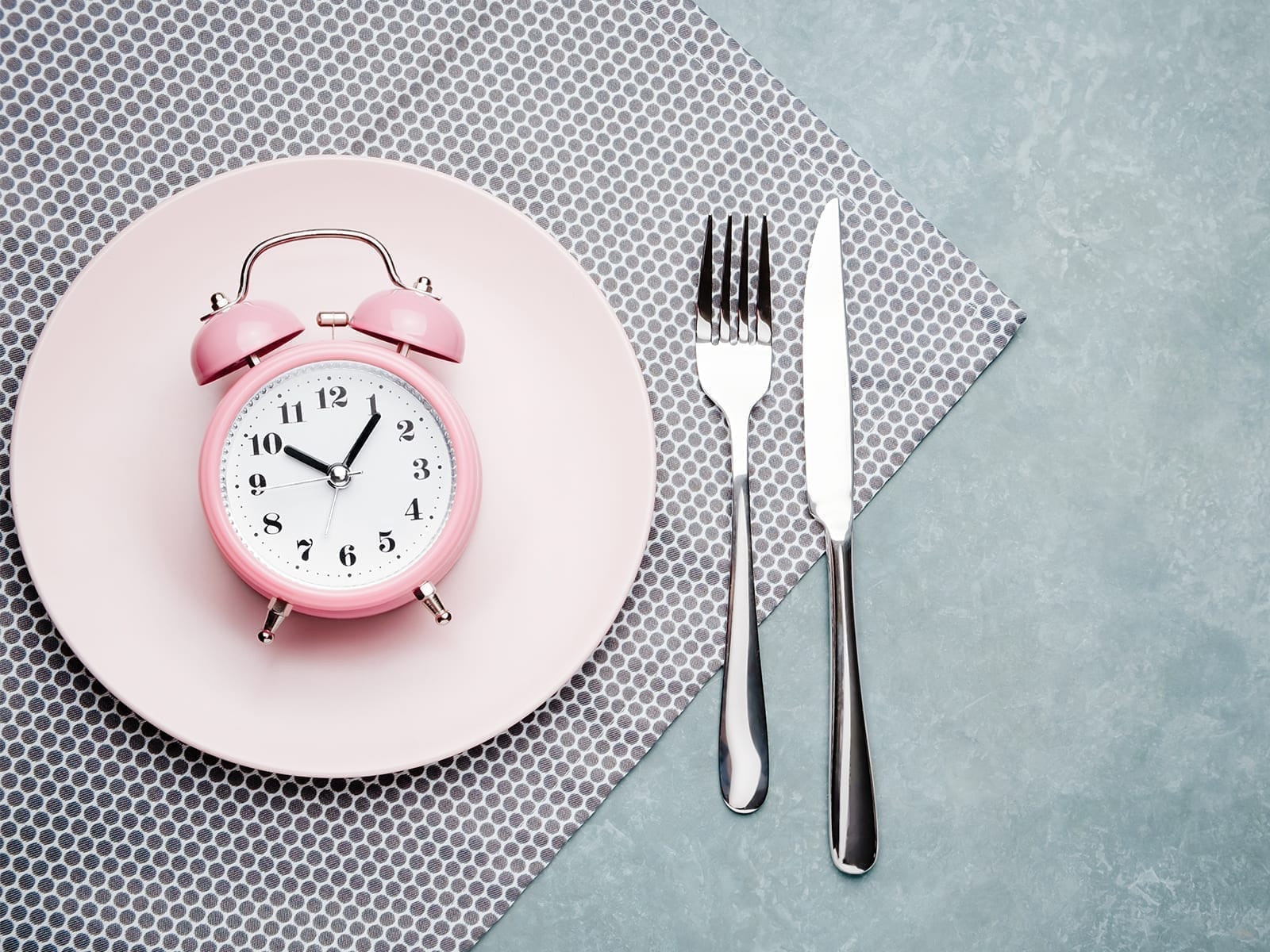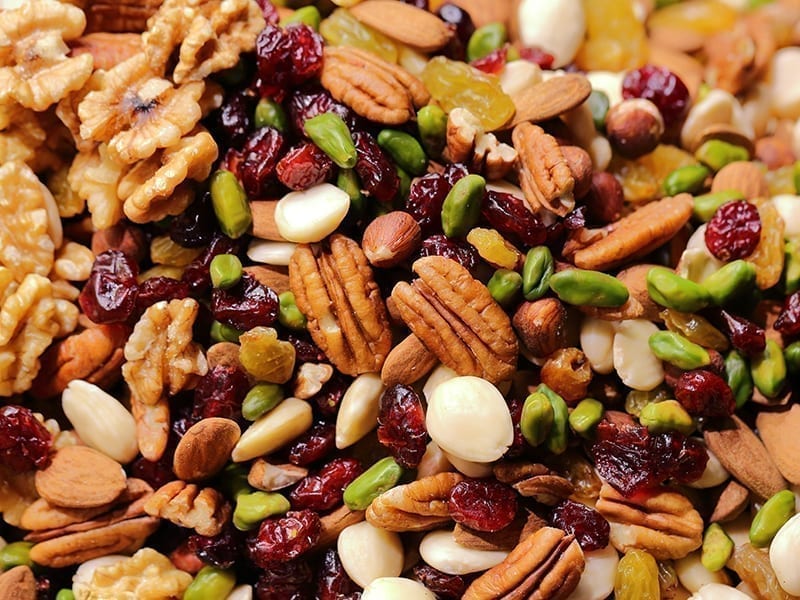Weight loss is a gradual journey that requires a customised balanced diet and proper workout routine that must be adhered to consistently. Making sudden, radical changes to eating habits such as eating nothing but cabbage soup or living on juices all day can lead to short term weight loss. However, such radical changes end up negatively impacting your health rather than making you fit and healthy.
Another highly debated topic when it comes to weight loss is snacking. Let’s understand how snacking affects your health and what are some desi snacks you can include in your diet if you’re trying to lose weight in a healthy way.
We roped in cure.fit’s holistic health coach Manasa Rajan, who explains what to eat and avoid while snacking, and also shares a delicious and nutritious snack recipe you must try!
1. How (and how much) does snacking affect weight loss?

There is no right or wrong way of snacking. Only eating small frequent meals isn’t necessarily the best thing to do. Eating a few large meals a day works well for some people. Some prefer to eat larger meals and not snack while others like having multiple meals. But those who mindlessly snack, while watching TV, working or indulging in Netflix and binging, can see the negative effects of this habit. This is especially detrimental when one is looking to lose weight. You can easily overcome this since you are not focused on eating.
The choice of snacks we generally opt for are not healthy either. Deep-fried food like chips and french fries, sweets like caramel popcorn makes it difficult to even realise you are full. This can lead to mindless overeating, not just calories but food that causes inflammation, are high in fat, made of refined ingredients like maida, or even processed ingredients.
The focus of snacking in order to effectively lose weight should be on how you eat, what you eat, and indulging in mindful eating. Not engaging in this can lead to overconsumption of the wrong foods quite easily.
2. What are the pros & cons of snacking when you’re trying to lose weight?
The good thing about snacking is that as it’s a small meal, it provides the opportunity to consume nutritious foods. Home roasted or boiled peanuts, homemade energy bars that are about 200-300 calories are great snacking options. Snacks like these, and nuts and seeds contain minerals and good protein, fats, carbohydrates and more. Bite-sized meals or snacks help you feel full for longer. These snacks fulfil your food cravings between two meals that have a gap of 5-6 hours, help maintain your blood sugar levels, keep you alert and your brain focused. A big bowl of salad might not be easy to consume for a lot of people. With snacks, you get the scope to consume nutrition-filled food. Eating fruit and nuts is a good way to get antioxidants and minerals without it turning into a meal.
One con of snacking is that you don’t give your digestive system a break. If you are constantly eating small meals throughout the day, your stomach and intestines don’t get a break. The digestive system may be at the end of it’s process, the intestines may be focused on the absorption of the nutrients of your previous meal. Eating a meal then engages the stomach, where it is getting broken down, making your digestive system a constantly in-work process. This leads to overworking of your digestive system and negatively impacts the nutrition absorption activity.
Weight Loss Tip: Eat CLEAN with a side of lean PROTEIN! Watch this video to learn about 5 ways to eat more protein for weight loss.
3. What’s a good schedule to follow when snacking?

A 3-4 hours gap between each meal or snack is advisable. Consuming snacks immediately after a meal, or eating too often without giving your digestive system a break, does more harm than good.
The concept of boosting your metabolism that is highly correlated with snacking is not such a simplistic one. Several people follow a diet that doesn’t see a huge gap between their last meal of the day and the first one. But during the day when they get hungry between meals, they choose a coffee or a cigarette over food. This is done to curb cravings that hamper your metabolism. When your body tells you to eat, you should be eating. By eating small snacks, you are retraining and rewiring your body and appetite to start functioning properly. This, of course, means not overeating in a single meal, but consuming smaller, nutritious snacks in between. You basically retrain yourself to understand your body’s hunger pangs along with signals to stop when full. This, in turn, enhances your metabolism.
Boosting your metabolism is a complex process. Not eating when you are terribly hungry then leads to binge eating. With snacking between meals, you maintain a healthy portion size during meals. It is more about retraining your body than it is about simply boosting metabolism. That’s the reason nutritionists recommend eating smaller, frequent meals.
4. What are five healthy snacks you would recommend

- For your sweet cravings: Try dates, dried figs, nuts like raisins, pistachios, cashews, seeds, and peanut butter with apple
- Savoury foods to try: All Indian lentils and beans turned into snacks like black chana chaat with green chutney, roasted or boiled peanuts, roasted chana, and sprouts chaat
- Desi snack options: Immunity boosting balls or ladoos, homemade roasted masala peanuts
- Snacks on the go: Clean energy bars with no sugar, no additives, no chemicals and dark chocolate (over 75%)
5. Are there any snack ingredients that are better for women than others? Which one would you recommend?
A great snack addition is flax seeds. Sprinkling a tablespoon of ground flax seeds or powder on your fruit bowl or oatmeal or adding it to your energy bar is a healthy habit you can adopt. Eating a tablespoon of flaxseeds two days before your period helps reduce menstrual pain and cramps.
Flax seeds contain:
- Good Omega 3 fatty acids
- Phytoestrogens (plant estrogen)
- A unique fibre that becomes gel when it goes into the digestive tract
Benefits of flax seeds:
- The fibre keeps you feeling full for longer, slows down the digestion process that, in turn, helps your body absorb nutrients better
- Omega 3 fatty acids are good for hormones, skin, hair
- Phytoestrogens reduce the intensity of premenstrual symptoms
6. What are some seemingly healthy snacks that are really unhealthy?
Packaged roasted nuts and trail mixes have added oil and sugars. While packaged nuts might seem healthy since you think they are basically nuts, such products have a lot of oil content. Packaged food contains hidden sugars in the form of glucose, corn syrup and artificial sugar substitutes that are harmful. It’s best to avoid such food items.
7. What are some classic tea time desi snacks that are healthier than others?
Indian snacks like chana chaat, sundal, homemade poha, murmura (puffed rice), and chivda (flattened rice) are super healthy. Along with these, boiled or roasted peanuts and corn on the cob are nutritious desi snacks.
Even with snacking you must not constrict yourself to the popular fake dieting rules- like avoid ghee, carbs or don’t eat after sunset. Watch this video and debunk some common weight-loss myths!


